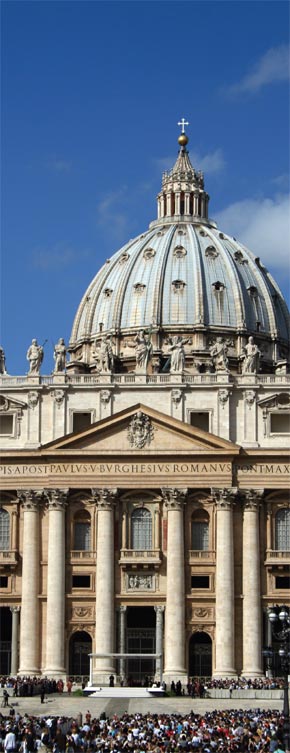I am not Catholic but like many I was captivated by the pomp and spectacle of the Church’s Conclave and its selection of a new Pope. Despite controversies and failings within segments of Catholic leadership, the papal election seemed transcendent of these as the media covered the event, with thousands of the faithful celebrating at the Vatican. Even self proclaimed non-Catholic reporters seemed genuinely moved, as an air of dignified calm seemed to emanate from the new Pope, Francis. Sentiments of goodwill were palpable.
Later that evening I watched the late night news broadcast. The Vatican election was their lead story of course, but it was followed by what is, sadly, the familiar litany of negative — murders, robberies and other dark examples of human potential. I was struck by the contrast; noble aspirations on the one hand, self-destruction and the antithesis of the very word “civilization” on the other. How can people with so much potential for good, also be able to harm one another so?
How is it that human behavior is so polarized
In the National Bestselling book, The Tipping Point, author Malcolm Gladwell asserts that “Ideas and products and messages and behaviors spread just like viruses do.” His premise is that due to a variety of subtle factors and narrowly defined environments of motivation, some level of critical mass—a tipping point—is reached, and something “big” happens, very quickly. And this applies to human behavior as well, be it good or bad.
I think a lot about human potential. For example, I’ll be driving along some major city street in mid-afternoon on a weekday, when I’ll notice groups of young men gathered together on the sidewalk or in doorways. I don’t mean to make assumptions or generalizations here, but I cannot help but wonder: Are they working together toward some purposeful goal, or are they just killing time? Perhaps they are “infected” by some grand and noble cause that is now approaching critical mass, soon to be realized in making the world a better place. But then again, maybe not.
I believe Gladwell’s theory. A tiny spark is all that is needed to start a raging inferno — if the proper fuel and oxygen exists to support it. So, where do we begin to start things off toward the good side?
For that answer, I suggest we begin with one passage from another bestselling book. The passage is part of a letter, written many years ago by a man named Paul, offering advice to the people of a town called Philippi, in ancient Greece. He said:
Finally, brethren, whatever things are true, whatever things are noble, whatever things are just, whatever things are pure, whatever things are lovely, whatever things are of good report, if there is any virtue and if there is anything praiseworthy—meditate on these things. The things which you learned and received and heard and saw in me, these do, and the God of peace will be with you.
Philippians 4:8-9
Perhaps the “God of peace” Paul refers to here was the catalyst for the recent atmosphere in Rome. Perhaps even non-Catholics could agree that this could be the “tipping point” the world needs.

